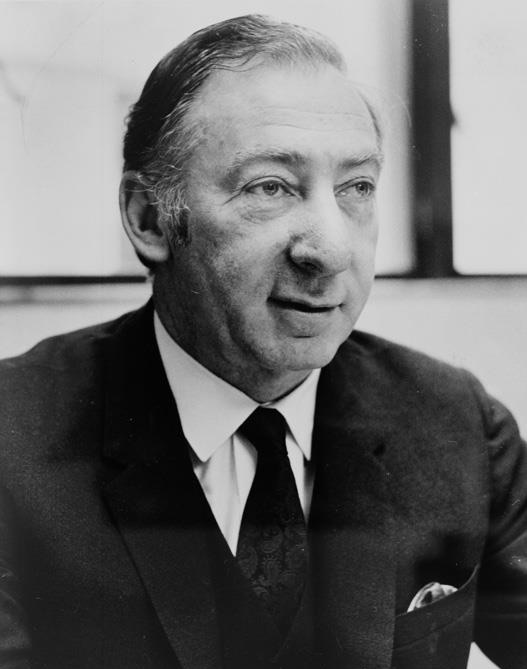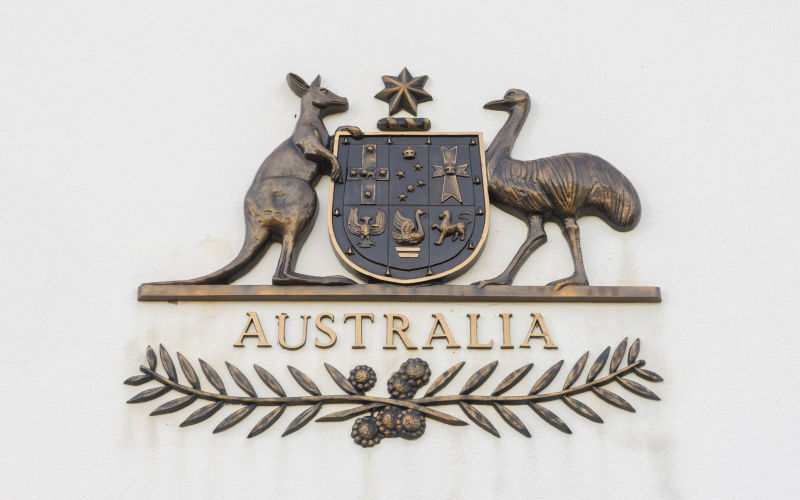It’s time for another reforming and agitating attorney-general
July 16, 2025
Just last month Australia celebrated the 50th anniversary of the Whitlam Government’s Racial Discrimination Act (1975), without much fanfare it has to be said.
Its significance was captured by the Human Rights Commission which noted that, “For five decades, it has been a cornerstone in the fight for equality, setting a legal and moral standard for the kind of nation we strive to be, one where everyone is treated with dignity, regardless of race, colour, descent, national origin, immigrant status, or ethnic origin.” Without it, for example, the Mabo case would not have succeeded.
The Racial Discrimination Bill was introduced into Parliament for the first time in December 1973 by the Attorney-General in the Whitlam Government, Senator Lionel Murphy QC, and it was very much Murphy’s concept and his eventual achievement that saw this landmark Act pass through a hostile Senate. As with so much of the Whitlam Government’s agenda, the Bill to outlaw discrimination on the grounds of race, immigration status, national origin or colour, was met with bitter resistance from the Liberal and National Party opposition. But Murphy was nothing if not a dogged campaigner for the reforms he championed, and after presenting the Bill several times it was finally passed into law in 1975 and gazetted only 10 days before the Whitlam Government’s shock dismissal.

As an activist attorney-general, Murphy’s reforms were wide-ranging and enduring. As well as a host of laws including the Trade Practices Act, Administrative Appeals Tribunal Act, Federal Court Act, and Death Penalty Abolition Act, many other important reforms were never enacted, being blocked by the opposition and lapsing with Kerr’s dismissal of the government. First amongst these was the Human Rights Bill – something many would see as fundamental to ALP values and to modern Australia, which is the only Western democracy without some form of national bill or charter of human rights.
The current Albanese Labor Government has been criticised for not having a broad and reforming vision and it is certainly the case that there have been few landmark legal reforms. Most significantly, Indigenous Australians are still waiting for meaningful action in so many areas despite repeated government pledges.
In 1982, then sitting on the High Court of Australia, Justice Lionel Murphy heard the case of the chairman of the Queensland Yarrabah Aboriginal Community, Percy Neal, who had been charged with assault “by spitting” at the white store manager. Neal’s case was, on the face of it, an unjust one; he was treated very harshly explicitly because the presiding magistrate saw him as an “agitator” for Aboriginal rights. Neal ended up serving six months in jail with hard labour. Justice Murphy wrote in his famous judgment in the Neal Case:
“That Mr. Neal was an ‘agitator’ or stirrer in the magistrate’s view obviously contributed to the severe penalty. If he is an agitator, he is in good company. Many of the great religious and political figures of history have been agitators, and human progress owes much to the efforts of these and the many who are unknown. As Oscar Wilde aptly pointed out in The Soul of Man under Socialism, ‘Agitators are a set of interfering, meddling people, who come down to some perfectly contented class of the community and sow the seeds of discontent amongst them. … Without them, in our incomplete state, there would be no advance towards civilisation.’ Neal is entitled to be an agitator.”
It is now 43 years since Justice Lionel Murphy’s excoriating judgment in the Neal case highlighted the systemic racism in the Queensland Magistracy, the courts system in general and the police, yet very little has been done about it. To look at just one area, deaths in custody, where the record is abysmal: despite the release of the Royal Commission into Aboriginal Deaths in Custody report in 1991, many of the 339 recommendations remain unmet. This is a national disgrace.
After the release this week of the Northern Territory Coroner’s report into the 2019 police killing of Kumanjayi Walker there was a response from the Minister for Indigenous Australians, Malarndirri McCarthy, who said she is “very interested” in the findings. One would hope so.
But where is the Australian attorney-general on this? Senator Lionel Murphy took a broad view of the role and duties of the attorney-general. The current Attorney-General, Michelle Rowland, could take even the narrowest and most conservative view of her role, namely that “the primary responsibility of the attorney-general is to protect, preserve and promote the rule of law”, and still be required to act decisively right now on Indigenous deaths in custody. Yet she has failed to do so.
After so many decades of inaction and continuing deaths that shame us all, there must be action from the Australian attorney-general to introduce legislative reform enshrining the Royal Commission into Deaths in Custody’s remaining recommendations. It is long overdue that an agitator again appears in our Labor Government and in particular in the office of attorney-general where there is so much law reform that needs to be done.
Daryl Dellora is an award winning documentary filmmaker and author. His documentary portrait of Lionel Murphy “Mr Neal is entitled to be an agitator” is screening at the Thornbury Picture House on 29 July.
The views expressed in this article may or may not reflect those of Pearls and Irritations.


